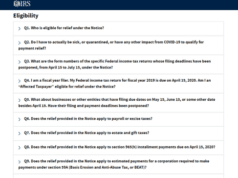Stock investors have a reputation for using various terminologies. These are industry-specific terms, used in the stock markets across the globe.
At first, these terminologies may seem a bit confusing. But with time, you can catch up.
Value investing is one of those terminologies. And those who prefer approaching the market this way are called value investors.
Keep reading to know what value investing means.
What Value Investment Means
Value investing is nothing more than an investment strategy. In this case, investors majorly focus on stocks that are way below their book value or worth.
Value investors can spot the long-term value of stocks, where others can’t. They scavenge the market for underestimated stocks and invest after careful consideration of several metrics.
No stock investor would deny that the market is volatile. It has been that way since time immemorial.
Overreaction by the market to news, whether good or bad, shapes things. It has a massive effect on stock prices.
An overreaction to bad news isn’t always good for the market and stock prices. Such news may cause stock prices to plummet.
But a falling or fallen stock price doesn’t put value investors off. It’s an invitation to own a piece of a promising company at a discounted price. One may even discover some underestimated stocks under 5.
Note – Not every underestimated stock is worth your penny. You have to possess foresight and do concrete research to identify the best investment opportunity for you.
Gurus such as Warren Buffet would never be forgotten for how he defined what being a value investor entails. His long-term value investing strategy and principles are worth emulating.
Undervalued Stocks: The Contributing Factors
Several factors can drag down a stock’s price. Here are a couple of them.
Market crash
Many of us may not have gotten over the dotcom bubble that swept through the stock market in the early 2000s. Such situations are likely recipes for a market crash.
In the dotcom bubble, tech stocks’ value went higher than their actual worth. Knowing that such an increase weren’t sustainable, investors started selling their stocks in large numbers.
It didn’t take long for the stock price to plummet during that era.
Bad news
Nothing rattles the stock market than bad news. And you will always have investors that respond to bad reports about companies.
But keep in mind that no company has immunity over bad news or events, whether it’s a recall or litigation. Even the big companies find themselves in such a situation most times.
For example, Apple, a $1 trillion company, had to recall the iPhone 7 at some point.
A negative event that happened to a company shouldn’t be a yardstick to write the company off. It’s just a phase, which would eventually pass.
Most investors also react to financial projects given by stock analysts. So when the company’s financial performance doesn’t match what analysts gave, they start panicking and start selling off their stocks.
Value investors aren’t like that. They focus on a company’s long-term value, not a negative event or current state.
The herd mentality
Investors need to consider several market fundamentals before making investment decisions. These market fundamentals can enable you to make an informed investment decision.
Herd mentality often leads to a market crash. It’s only when the stock price is rising that you may investors with such mentality. They view it as the right time to invest in the market.
But as prices start falling, you’ll start selling off their stock.
Strategies Value Investors Use
Value investors consider several factors before investing in any underestimated stock. These strategies help them to make healthy investment decisions.
The transactions of the insiders
The transaction here talks about the buying and selling activities of those running the company. These include the directors and top managers.
A value investor would consider the activities of these top insiders in the company. If they’re buying more shares, it could be a positive sign and a good investment opportunity for an interested value investor.
Financial Report
The reason people invest in stock is to have dividends. So, even if the company you’re planning to invest in doesn’t have an electrifying financial report now, there should be signs of something possible in the long-term.
A value investor would check the company’s annual financial report and compare it to its peers. That way, the investor can decipher a company’s long-term value.
Financial statement
The balance sheet is crucial to value investors when evaluating a company. It shows you all the basic things you need to know about a business’ financial health.
You’ll find the company’s assets, the shareholder’s equity, and liability in the balance sheet.
The liability reports the money owed, while the asset is divided into two. These include the cash and cash equivalent.
The shareholder’s equity reports the amount of money from investors, including its retained earnings.
Many value investors have used landed diverse life-changing investment opportunities. Hopefully, this post will provide great insight into stock investing, so you can take advantage of the numerous opportunities in the market.









